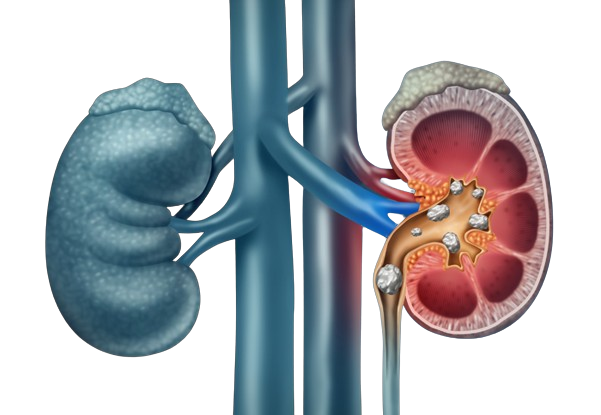What is Urologist – Everything Need to Known Doctor for Men’s Problems
Few people are knowledgeable about urology, a specialty in medicine that many are curious about. Nonetheless, most of us will probably require the assistance of a urologist at some point in our lives.Urology is a subspecialty for healthcare that focuses on the diagnosis and treatment of conditions pertaining to the male reproductive system and urinary tract. This thorough blog will cover the functions of urologists, conditions that are often treated, and the importance of getting professional assistance when dealing with Doctors for men’s problem health issues.
What is Urologist Doctor
A urologist is a medical professional who specializes in the diagnosis, treatment, and management of disorders related to the urinary tract and the male reproductive system. Urologists undergo extensive training in medical school and residency to become experts in their field. They are equipped to handle a wide range of conditions, including urinary tract infections, kidney stones, prostate issues, erectile dysfunction, infertility, and cancers of the urinary tract and reproductive organs. Urologists play a vital role in promoting men’s health and addressing both routine and complex urological issues with specialized care and treatment plans tailored to individual patients.
Why should men see a urologist?
As men age, their quality-of-life may begin to worsen.Certain illnesses that were once only a distant concern are now having an impact on day-to-day living. Urinary system and sexual health in men can be impacted by changes in the reproductive system.
Experts in treating these conditions, urologists can also help you modify your lifestyle or receive treatment to enhance your quality of life. Don’t assume that any changes you notice are just a result of getting older. Seek the assessment of a urologist to determine the underlying cause, which can frequently be treatable.

Common Conditions Treated by Urologists
Urinary Tract Infections (UTIs):
UTIs are bacterial infections that affect the bladder, urethra, or kidneys. Urologists can diagnose and treat UTIs, prescribing antibiotics to eliminate the infection.
Kidney Stones:
Urologists are skilled in managing kidney stones, which are solid masses of minerals that form in the kidneys. Treatment options may include medications, lithotripsy, or surgical removal.
Erectile Dysfunction (ED):
ED is a common condition characterized by the inability to achieve or maintain an erection sufficient for sexual intercourse. Urologists offer various treatment options, including medications, penile implants, and lifestyle changes.
Benign Prostatic Hyperplasia (BPH):
BPH is a non-cancerous enlargement of the prostate gland that can cause urinary symptoms such as frequent urination and difficulty emptying the bladder. Urologists can recommend medications or perform minimally invasive procedures to alleviate symptoms.
When should you see a Urologist?
Many men feel hesitant or embarrassed to seek medical help for urological issues, but it is essential to prioritize your health and well-being. Urologists are trained professionals who specialize in addressing men’s health concerns with sensitivity and discretion.
A patient may be referred to a urologist for treatment of a range of conditions:
Difficulty urinating:
If you have trouble starting or maintaining a urine stream, or if you experience pain or burning during urination, it could indicate various urological issues such as an enlarged prostate or urinary tract infection.
Blood in urine:
The presence of blood in urine, known as hematuria, can be a sign of kidney stones, urinary tract infections, or more serious conditions like bladder or kidney cancer.
Erectile dysfunction:
If you have persistent difficulty achieving or maintaining an erection, it may indicate underlying health problems such as diabetes, high blood pressure, or cardiovascular disease.
Testicular pain or swelling:
Pain or swelling in the testicles can be caused by infections, trauma, or more serious conditions like testicular cancer.
Frequent urinary tract infections:
If you experience recurrent urinary tract infections, especially if they are severe or difficult to treat, it may indicate an underlying urological issue that requires further evaluation.
Kidney stones:
If you have a history of kidney stones or experience sudden and severe pain in your back or side, along with nausea and vomiting, it could be a sign of kidney stones that require medical attention.
Infertility:
If you and your partner have been trying to conceive without success for an extended period, it’s advisable to see a urologist who specializes in male infertility to assess potential causes and treatment options.
Prostate issues:
If you’re experiencing symptoms such as frequent urination, difficulty emptying your bladder, or pain or discomfort in the pelvic area, it may be related to prostate problems such as benign prostatic hyperplasia (BPH) or prostate cancer.
Conclusion
SLG Hospital stands out as a premier healthcare and best urologist in Hyderabad, renowned for its exceptional urology and andrology in Hyderabad. With a team of highly skilled urologists and andrologists, SLG Hospital offers top-notch medical care and personalized treatment plans tailored to each patient’s needs. Patients can trust SLG Hospital to provide comprehensive care for a wide range of urological and andrological conditions, from kidney stones and urinary tract infections to male infertility and erectile dysfunction.
As one of the best hospitals in Hyderabad, SLG Hospital is committed to delivering superior healthcare services with compassion, integrity, and excellence. The hospital’s state-of-the-art facilities, advanced medical technologies, and patient-centric approach ensure that every individual receives the highest standard of care.
Sources:
https://www.maxhealthcare.in/blogs/urologists-who-are-they-and-what-can-they-do-me
https://www.healthline.com/health/what-is-a-urologist#procedures















